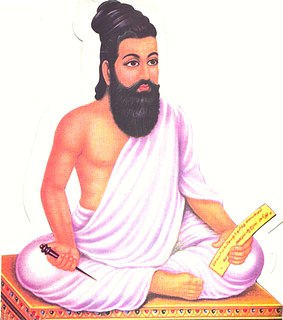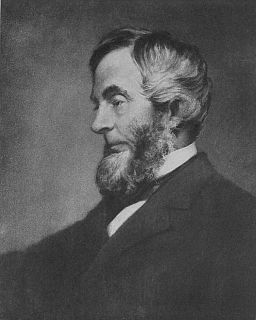A Quote by Jean de la Bruyere
As a man falls out of favour and his wealth declines, we discover for the first time the ridiculous aspects of his character, which were always there but which wealth and favour had concealed.
Related Quotes
Every time man makes a new experiment he always learns more. He cannot learn less. He may learn that what he thought was true was not true. By the elimination of a false premise, his basic capital wealth which in his given lifetime is disembarrassed of further preoccupation with considerations of how to employ a worthless time-consuming hypothesis. Freeing his time for its more effective exploratory investment is to give man increased wealth.
The man of wealth [should] consider all surplus revenues which come to him simply as trust funds, which he is called upon to administer to produce the most beneficial results for the community - the man of wealth thus becoming the mere trustee and agent for his poorer brethren, bringing to their service his superior wisdom, experience and ability to administer, doing for them better than that they would or could do for themselves.
Wealth brings noble opportunities, and competence is a proper object of pursuit; but wealth, and even competence, may be bought at too high a price. Wealth itself has no moral attribute. It is not money, but the love of money, which is the root of all evil. It is the relation between wealth and the mind and the character of its possessor which is the essential thing.
It is true that so far as wealth gives time for ideal ends and exercise to ideal energies, wealth is better than poverty and ought to be chosen. But wealth does this in only a portion of the actual cases. Elsewhere the desire to gain wealth and the fear to lose it are our chief breeders of cowardice and propagators of corruption. There must be thousands of conjunctures in which a wealth-bound man must be a slave, whilst a man for whom poverty has no terrors becomes a freeman.
Step back in time; look closely at the child in the very arms of his mother; see the external world reflected for the first time in the yet unclear mirror of his understanding; study the first examples which strike his eyes; listen to the first words which arouse within him the slumbering power of thought; watch the first struggles which he has to undergo; only then will you comprehend the source of his prejudices, the habits, and the passions which are to rule his life. The entire man, so to speak, comes fully formed in the wrappings of his cradle.
How strange and foolish is man. He looses his health in gaining wealth. Then to regain health he wastes his wealth. He ruins is present while worrying about his future - but weeps in the future by recalling his past. He lives as though death shall never come to him - but dies in a way as if he were never born.
The Landlord is a gentleman who does not earn his wealth. He has a host of agents and clerks that receive for him. He does not even take the trouble to spend his wealth. He has a host of people around him to do the actual spending. He never sees it until he comes to enjoy it. His sole function, his chief pride, is the stately consumption of wealth produced by others.
This is a man with an old face, always old... There was pathos, in his face, and in his eyes. The early weariness; and sometimes tears in his eyes, Which he let slip unconsciously on his cheek, Or brushed away with an unconcerned hand. There were tears for human suffering, or for a glance Into the vast futility of life, Which he had seen from the first, being old When he was born.







































